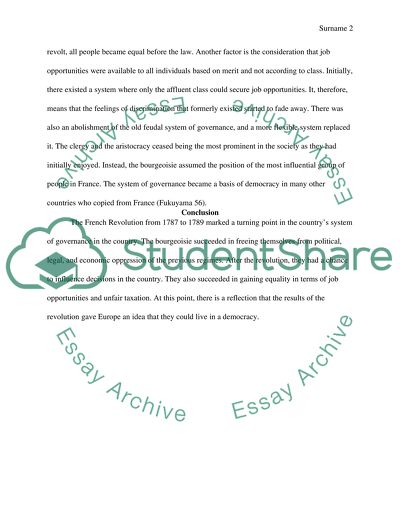What did the French Revolution achieve for the bourgeoisie in terms of Essay. Retrieved from https://studentshare.org/english/1678254-what-did-the-french-revolution-achieve-for-the-bourgeoisie-in-terms-of-liberty
What Did the French Revolution Achieve for the Bourgeoisie in Terms of Essay. https://studentshare.org/english/1678254-what-did-the-french-revolution-achieve-for-the-bourgeoisie-in-terms-of-liberty.


